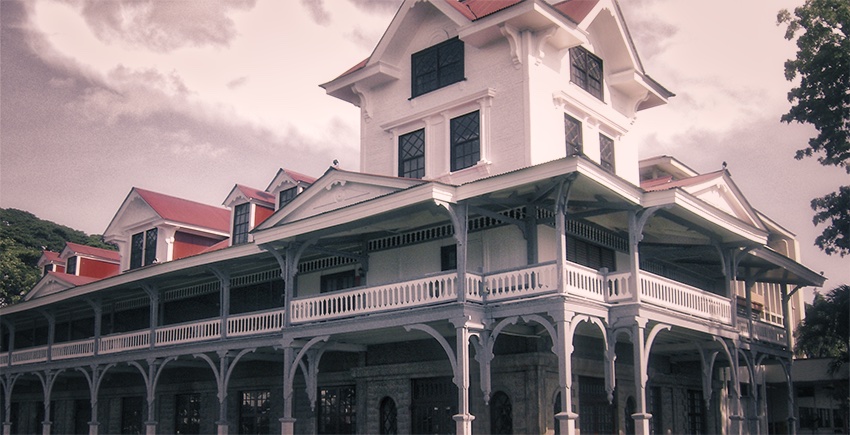
Of Service and Courage
Last November 19, my husband Veneeth and I attended a forum at the Center for Strategic and International Studies hosted by the US Philippines Society and the Philippine Embassy in Washington DC. The forum tackled updates and lessons learned a year after typhoon Yolanda struck the Eastern Visayas. It was attended by four Philippine Ambassadors to the US and representatives from the US Philippines Society. Panelists were from the Philippines’ DPWH, OPARR, Manila Observatory, Disaster Recovery Foundation, Zuellig Family Foundation for NGO, Procter and Gamble for Business partner and representatives from the Peace Winds America, the US Agency for International Development and the Overseas Citizens Services of the US Department of State. Each of the panelists was given around five to seven minutes to present. following strict guidelines set by Ambassador Roberto Romulo. Thereafter, the audience had the chance to interact with them.
Questions that were asked, including those of my husband’s, touched on matters related to logistics, morale, and implementation costs and processes. There were also queries on the recovery and rehabilitation program that was in place, and how the government is now working towards ensuring the prevention of the same extent of damage brought about by such disaster. Bottom-lime: Thrown to the audience were big words with big numbers.
What was unfortunate was most of those in the panel never really had the chance to see first-hand the devastation brought by typhoon Yolanda in Eastern Visayas, particularly to the people. Taking some encouragement from my husband, I dared myself to ask what I thought was a bold question. I felt the urge to put across a message from someone who had been part of Silliman University’s team that administered psychosocial intervention to the victims of typhoon Yolanda.
“Good afternoon everyone. My name is Von Cathlene Panot-Iyengar, a volunteer-member of the Community Care Program of Silliman University and Gawad Kalinga. Before I came here to the United States, I’ve had the privilege of being at the forefront of helping out in the relief goods operations and stress debriefing of the people in the disaster-stricken areas in Leyte. I also did the same in Bohol which was affected by a 7.2 magnitude earthquake. Some of the challenges I’ve seen having talked to these people were the timeliness and extent of help that reached their localities. With this, how can you ascertain that the right people received the right assistance?”
There was a moment of silence. The panelists looked at each other, as if deciding among themselves who will answer first, as I went back to my seat with a huge sigh of relief. And then one panelist started to answer. And just when I thought the same would be the case — a question being responded to by only one panelist — a second then a third panelist took turns in sharing their piece on my question. I wasn’t sure if they were merely answering my questions or justifying what they had presented to be their response to the disaster, especially that genuine action takes place on the ground, not from behind desks.
While listening to their answers, I got a strong rap at my right upper arm by a male sitting behind us. “Very good question!” he said. My husband also had a big grin on his face (I didn’t know if he felt that way because I simply grabbed the chance to ask a question.). Deep inside, I felt proud to have asked not just a but that question. My experience provided me with depth and some confidence to express what I felt was a valid concern that continues to haunt us until today. I later found out that the guy I was seated beside, the same guy who remarked positively on my question, was a Filipino — Ret. Maj. Gen. Antonio Taguba of the US Army.
That rare moment of being able to ask a daring question to Ambassadors and heads of Philippine government agencies made me realize that I was very fortunate to have had the opportunity to serve my brothers and sisters in the Visayas. To be a part of a noble cause of helping them in a more intimate way and to be able to see that your time and presence made all the difference.
Together with my deep involvement with Gawad Kalinga-Negros Oriental, I learned to appreciate the value of volunteerism and impassioned blind service — blind in a sense that we serve without prejudice to gender, religion or status. And indeed I am proud to say that my alma mater Silliman University, together with the UCCP Church, with its Community Care Program, made such great impact not only in the lives of the people that we cared for but also in our own lives.
Indeed, when one knows by heart what needs to be done and does her best to create some positive change in the community, the strength of character and the genuine passion to serve prevail and create that spark to rise up and be heard.
ABOUT THE AUTHOR :
Von Cathlene Panot-Iyengar
Bachelor of Science in Education (2013);
Von is a performing artist and a gender rights advocate. She is now based in Washington, DC, USA.


